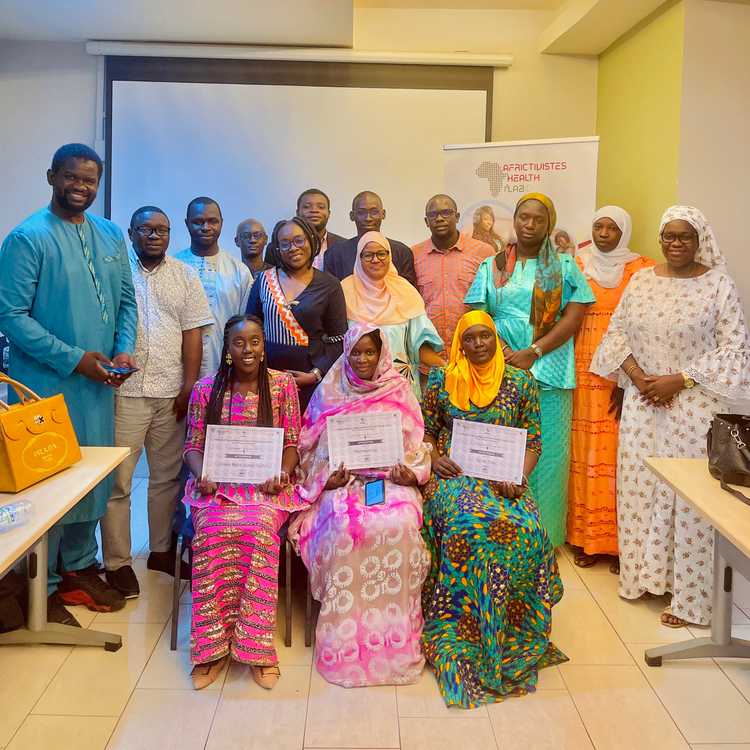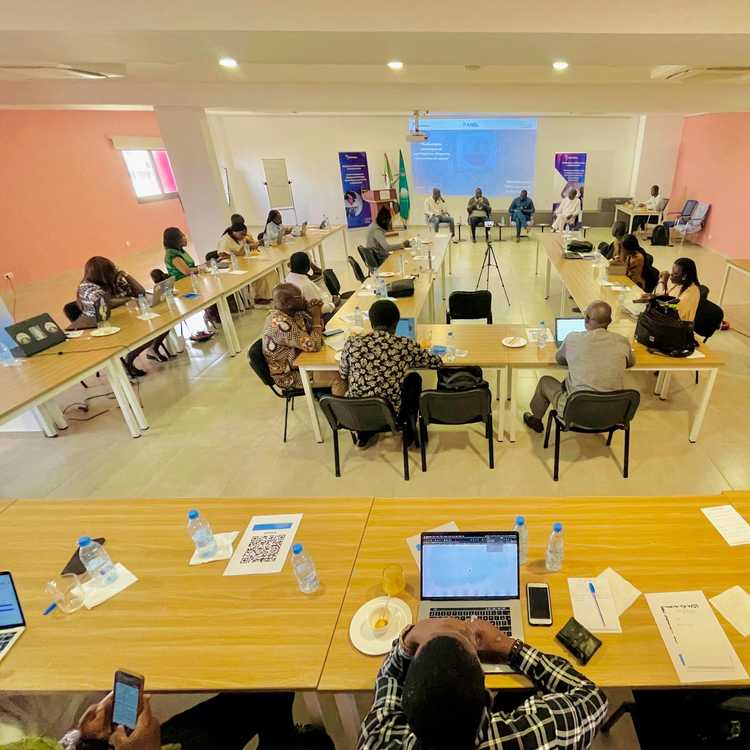How to put an end to the series of coups d’état in West Africa: Our experts give their position
How can we stop the spiral of coups d’état in West Africa? This is the topic of this second webinar in the pan-African online citizen consultation organised by AfricTivistes on 18 October 2023. In less than three years, five countries in West Africa and the Sahel have experienced several military putsches and attempted coups. This is the pretext for this virtual session in partnership with the Club De Madrid, with the participation of eminent experts on governance and democratic practice in Africa, some of whom have played leading roles in the political governance of their countries.
This issue, which is both sensitive and central to discussions, has been in the news recently in a number of countries in Africa in general and in West Africa in particular. To explore this issue in all its complexity and ramifications, session moderator Aisha Dabo, programme coordinator at AfricTivistes, gave the floor to the following speakers:
– Moussa Mara, former Prime Minister of Mali ( 2014-2015),
– Aminata Touré, former Prime Minister of Senegal ( 2013 – 2014)
– Alioune Tine, iconic figure in Senegalese civil society and founder of Afrikajom Center
– Camilla Rocca, Director of Research at the Mo Ibrahim Foundation.
Moussa Mara, former prime minister of Mali, was the first to take the floor. In his opening remarks, he emphasised that the armed forces are not a solution to the problems of governance in the countries where they have already taken power: “We need to be patient because military regimes are still very popular in our countries. Let’s give the people time to understand and demystify military regimes by showing intelligence and patience to obtain their progressive departure”.
Following on from the current member of Mali’s transitional parliament, Mr Alioune Tine, the United Nations independent expert on human rights, insisted on a return to the fundamentals and African values in order to make democracy their own: “Civil society must provide itself with the skills it requires to propagate a culture of democracy, human rights and tolerance. We need to return to our values for a deliberative democracy”.
Aminata Touré, former Prime Minister of Senegal, is convinced that military coups also reflect, in a way, a deep crisis in political systems that are “disconnected from popular expectations and burdened by corruption”.
According to the former Minister of Justice, we need to:
– Establish solid democratic institutions,
– Defeat corruption,
– Strengthen good governance,
– Educate citizens about democracy.
She joins the former director of Amnesty International West and Central Africa, Mr Tine, in saying that “military coups are symptoms of the crisis and the dysfunction of our governments. We need to think about a new social contract”.
He underlined that this crisis in West Africa is not isolated. It is an illustration of the profound crises of representative democracy throughout the world.
During her presentation, Camilla Rocca, Director of Research at the Mo Ibrahim Foundation, demonstrated with figures (based on the Mo Ibrahim Index of Governance in Africa 2022) how African populations’ perception of coups d’état has changed over the last two years.
She also analysed the domino effect of anti-constitutional changes of power in West Africa, and all the consequences they generate:
– Declining support for democracy and rising pro-military positions,
– Term limits and older leaders,
– The need for generational change…
To confirm the results of the Mo Ibrahim Index shared by Ms Camilla Rocca, Cheikh Fall, President of AfricTivistes, also highlighted the development of a form of “fantasy” about “coups d’état” as a response to the democratic crisis in certain African countries.
He pointed out the need to take account of the links between :
-The security crisis and the crisis of democracies,
– The legitimacy of coups d’état and the growing popular demand for more democracy,
– Sovereignist rhetoric and the polarisation of the public space,
– The lack of education in citizenship and the Media…
The demand for more democracy and good governance expressed by the people far exceeds the political offer of those in power. This, he says, is “creating an ever-widening gap that is fuelling the current frustrations”.
According to this Civic Tech expert, one of the possible solutions to this crisis is “to learn from our failures and move towards a democratic system that would be the result of an endogenous and culturally accepted approach that would be closer to our values. “
This Citizen Consultation is one of a series of activities organised by Africtivistes as part of the Charter Project Africa. It is an opportunity to put into practice one of the principles of the ACDEG relating to citizen participation and the role of civil society in speeding up the ratification of this key political document of the African Union.
We encourage members of civil society organisations, local initiatives, youth and activists or ordinary citizens from the continent and its diaspora to contribute and engage in thematic discussions by following this link: https://charter.africa/opportunities/consultation
To follow this webinar in full


![[Mali] AfricTivistes calls on the junta to respect fundamental rights!](/static/bd7efaf062b64313cb28d63c1830b96a/9e635/WhatsApp-Image-2024-04-17-at-13.58.19.jpg)


![[Congo]Africtivistes demands the immediate and unconditional release of all activists](/static/503b1823ba8a254ad4ebd649fcf7d38c/fce2a/aliousane.png)

![[Senegal] AfricTivistes and five other organisations demand light be shed on assaullt of journalist Maimouna Ndour Faye](/static/15e44ab239406e91d8f4a5d451f5d71c/9e635/WhatsApp-Image-2024-03-02-at-14.41.24-2.jpg)



![[Senegal] AfricTivistes, two Senegalese journalists petition the ECOWAS Court over repeated mobile Internet data cuts](/static/a46ec338b20b38a189c8e35f96d090a1/fce2a/coupure-dinternet.png.png)
![[Sénégal] AfricTivistes stands against declining democracy in Senegal!](/static/6abab4867f4b682edc9f916ff3bbeb49/9e635/Restriction-internet-.jpg)



![[Sénégal] AfricTivistes stands against declining democracy in Senegal!](/static/6abab4867f4b682edc9f916ff3bbeb49/0f5ce/Restriction-internet-.jpg)



